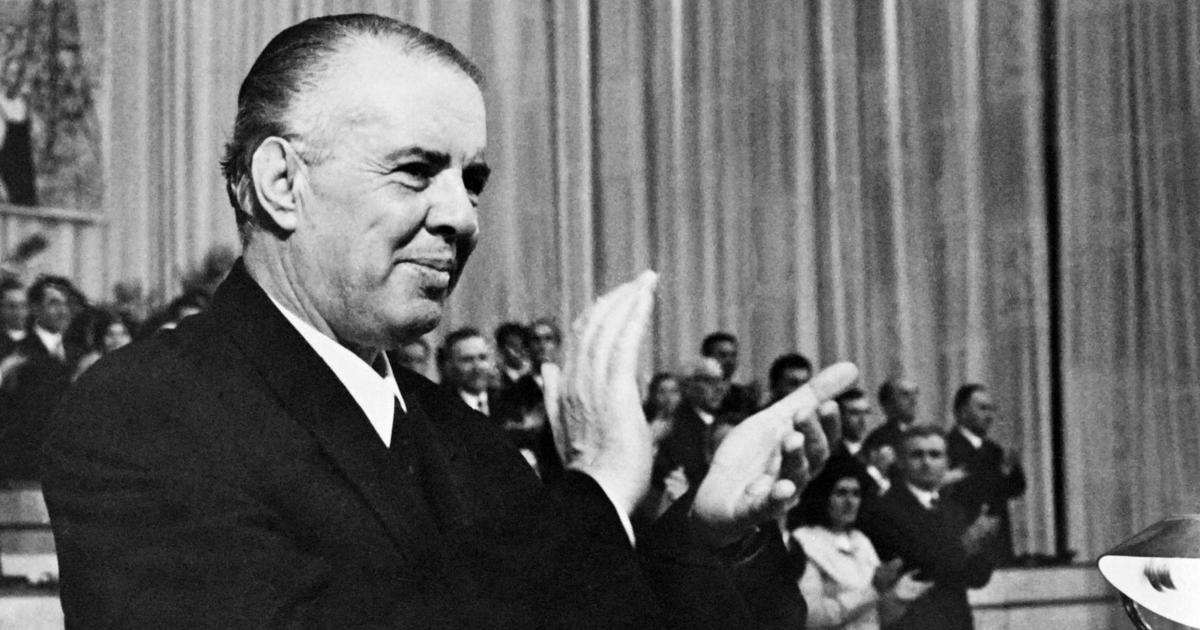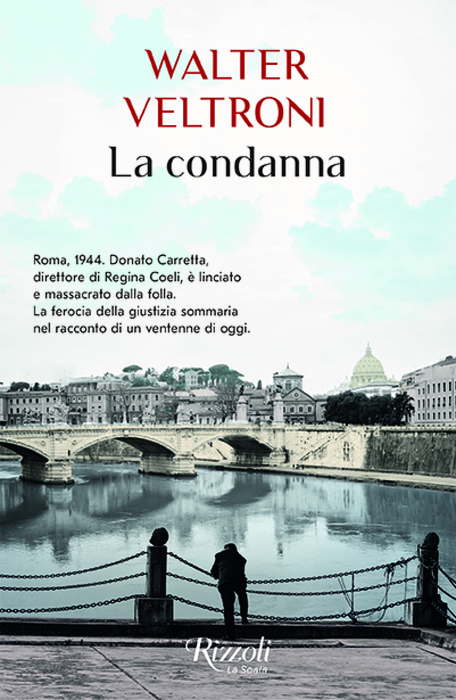Icon: enlarge
Hundreds of people demonstrated in Hanover in July 2018 for a more detailed investigation into the NSU murders
Photo: Tim Wagner / imago images
As a young man, Enver Şimşek knew exactly what he wanted.
His relatives tell how Şimşek married his wife at the age of 18 in Salur, a village in the Turkish province of Isparta.
It was not a promised or arranged wedding, Enver and Adile Şimşek married out of love, says Adile.
You would have been impressed by his ambition, his hard work and his efficiency.
They went to Germany, where Adile's father lived.
Their daughter was born here in 1986 and their son a year later.
Enver Şimşek was an ambitious man.
A "guest worker", as they said at the time, with a big dream in his luggage: if he could one day afford it, Enver Şimşek wanted to become a florist.
He loved flowers.
He worked on the assembly line in a factory, assembling auto parts together.
He voluntarily took on night shifts because of the bonus and worked overtime.
After work he continued to work: in the basement of the house where he lived with his family, he tied flowers into bouquets and sold them on the side of the road on the weekend.
At some point he quit his job and started his own flower shop, opened shops and stands.
On his van it said: "Şimşek flowers".
Enver Şimşek now worked seven days a week, as his relatives say.
Because the father of two still had a dream: one day he wanted to live again in his home village of Salur, surrounded by the mountains and the people who remained familiar to him throughout his life.
Enver Şimşek returned there almost 20 years ago - as a dead man.
He is the first known murder victim of the "National Socialist Underground" (NSU).
On September 9, 2000, between 12.45 and 2.15 p.m., Enver Şimşek was gunned down in his van at a parking lot in Nuremberg-Langwasser: four shots in the head, one in the left eyeball, three shots hit him when he was already on the ground .
His killers used two weapons.
They then took a picture of Enver Şimşek lying in his van, seriously injured.
The picture appears in the so-called Paulchen Panther video, under the heading: "Original".
Enver Şimşek succumbed to his injuries two days after the crime.
He was 38 years old.
"It was measured by two standards"
"You didn't have to kill him to ensure the preservation of the German nation," said lawyer Seda Başay-Yildiz in her plea in the NSU trial before the Munich Higher Regional Court.
She represented the family in the proceedings.
"Enver Şimşek would have returned anyway."
She vividly outlined how differently the investigators in the Şimşek murder case had proceeded compared to the Michèle Kiesewetter murder case.
The police officer was also killed by the NSU.
At that time, Adile Şimşek was summoned to the station and questioned while her husband was dying.
An interrogation in the hospital was out of the question.
The mother of the shot police officer Kiesewetter, on the other hand, was brought the news of her death, accompanied by a pastor and a pastor.
The investigators were considerate, gave the mother ten days before she was questioned - at home, in her protected, familiar environment.
"It was measured by two standards," says Seda Başay-Yildiz.
In her opinion, this was the case then, and it is still the case today.
After 20 years and despite the attempt to work through the NSU complex, nothing has changed, says the Frankfurt lawyer.
She represents the surviving dependents of three families in the racist attack in Hanau, in which ten people were killed and many more were injured, some seriously.
Seda Başay-Yildiz criticizes the fact that Hessian police officers treated the relatives of Hanau "insensitively".
They were gathered that night and were informed about who had died by the police reading out a list of the names of the victims;
a relative told her that he was then left alone with this news.
Hesse's Interior Minister Peter Beuth (CDU), however, only recently affirmed that the country was on the side of the victims' families.
On the night of the crime, the police had set up extensive victim and family support in Hanau;
The minister promised further assistance to the relatives of the victims.
Lawyer Başay-Yildiz, however, sticks to her criticism: "I thought we had learned from the NSU," she says.
"I thought you had learned that all people have equal rights."
Vandalized memorials for the victims of the NSU
Left-wing politician Katharina König-Preuss, anti-fascist spokeswoman and member of the NSU investigative committees in the Thuringian state parliament, sums up that the authorities had hardly learned any lessons from the NSU series of murders.
After the attack on the synagogue in Halle, the police had assigned a nun to the Jewish victims.
Nevertheless, there is a decisive change: "Those affected by racism have fought for a space, their voices have become louder," says König-Preuss and speaks of a "self-empowerment of those affected".
The NSU process also promoted awareness raising in society.
"We are talking about racism today in a way that was not possible 20 years ago."
König-Preuss recalls a silent march for the murdered Halit Yozgat, the ninth NSU victim, in May 2006 in Kassel.
Halit Yozgat's father Ismail and Enver Şimşek's daughter Semiya gave speeches.
"At that time you were still alone on the street," says the left-wing politician.
"It would be different today."
There are now memorials for the victims of the NSU in several places.
But they are smeared, stained, destroyed with swastikas.
"There is hardly a place of remembrance that has not yet been desecrated," says König-Preuss.
In Winzerla, the Jenas district where the NSU terrorists came from, a square is soon to be named after Enver Şimşek.
Abdulkerim Şimşek, Enver's son, will speak at a rally in Nuremberg on this anniversary.
His words from the trial before the Munich Higher Regional Court in January 2018 have not been forgotten: He described that the surprising, brutal death of his father was not the only bad thing for the family at the time.
Disastrous consequences for the family
The suspicions against the relatives, the allegations to what extent the father himself provoked or triggered the murder, weighed on the family.
Enver Şimşek was accused of dealing with drugs, a mistress and contacts in the criminal milieu.
The result: the family was socially marginalized, ran into financial problems, and the mother fell ill with depression.
Abdulkerim Şimşek said he was "relieved" when it was discovered in 2011 that his father had been murdered by the Nazis.
Facilitated!
Enver Şimşek's family had to wait eleven years and two months for the father and husband to be proven innocent.
(Read an interview with Abdulkerim Şimşek on the verdict in the NSU trial here.)
Who gave the reference to Enver Şimşek?
On the 20th anniversary of the shooting at Enver Şimşek, President of the Bundestag Wolfgang Schäuble wants to commemorate the victims of the NSU series of murders on this day before the start of the meeting.
On this day, Adile and Semiya Şimşek will be where Enver Şimşek wanted to spend his old age: in Turkey.
The house that Enver Şimşek built in his home village is empty.
Too many memories, says Seda Başay-Yildiz.
His clothes are in the bedroom closet.
As if he was coming in the door any minute.
On this important day, his son will give a speech on behalf of the family: at the crime scene in Nuremberg, the parking lot in Liegnitzer Strasse, where the city plans to hold a commemorative event, together with the Alliance against Right-Wing Extremism in the Nuremberg Metropolitan Region and the Altenfurt parish.
The documentary film "Traces - The victims of the NSU" by Aysun Bademsoy will be shown in the Documentation Center of the Nazi Party Rally Grounds, followed by a discussion on how to deal with the NSU and the ongoing threat from right-wing extremism in Germany.
Seda Başay-Yildiz, the family's lawyer, still believes it is unlikely that the NSU terrorists Uwe Mundlos and Uwe Böhnhardt killed the florist Enver Şimşek without any information from local people.
You don't come across this remote place in Nuremberg by accident, she says.
The reasoning of the criminal senate and the arguments of the Federal Public Prosecutor that the two men scouted the crime scene themselves, she considers to be alien.
Seda Başay-Yildiz is convinced that anyone who wanted to kill Şimşek took targeted action.
It is still unclear who might have given the murderers a tip.
Icon: The mirror









